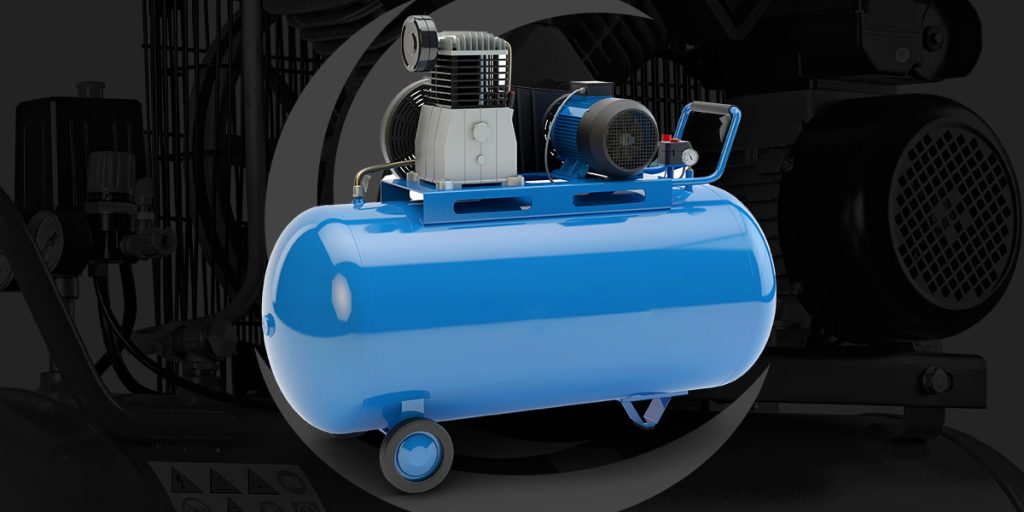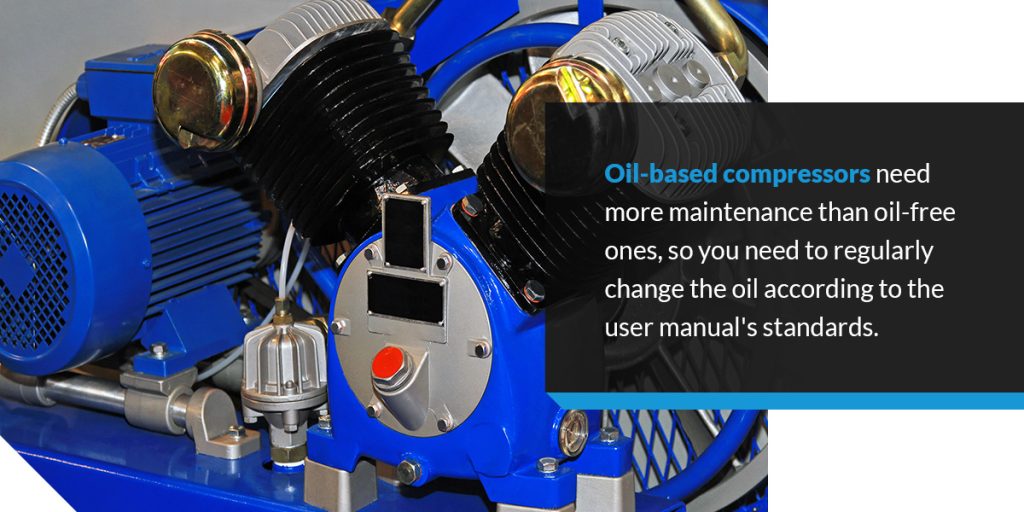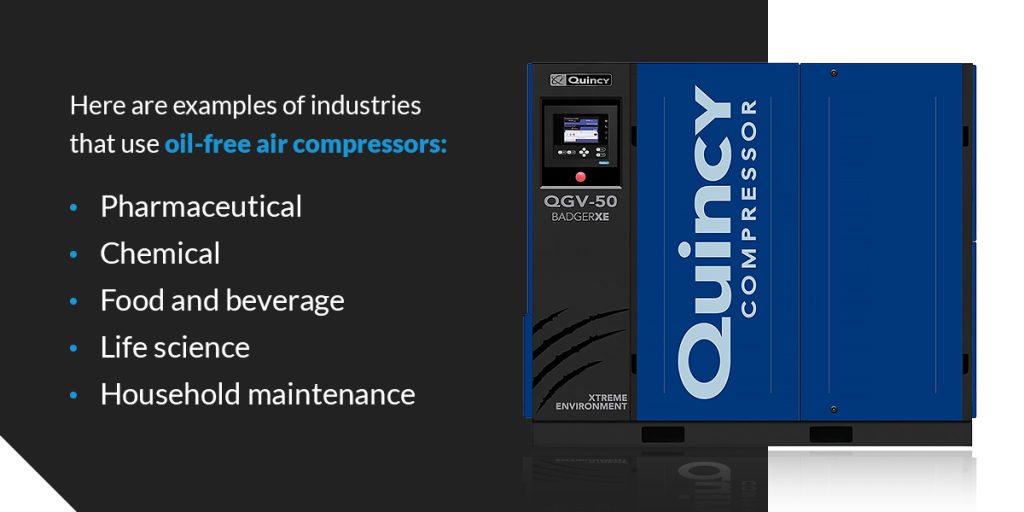

When choosing an air compressor, you might encounter a few variations in your selection. For instance, some vary by application, while others are better suited for long-term uses. One of the biggest distinctions between air compressors is their use of oils.
While some are oil-lubricated compressors, others are oil-free compressors. All of the moving parts in air compressors require some form of lubrication. Without sufficient lubrication, your compressor won’t work properly — oil and oil-free air compressors use different substances to stay lubricated.
How are oil and oil-free air compressors different? Keep reading to learn more.
An oil air compressor uses oil to lubricate and cool the components within. The oil reduces wear and keeps the unit from overheating. These compressors are highly durable and often used for heavy-duty applications. Typically, they emit a lot of heat, so the oil acts as a natural coolant.
Because the compressors use oil, they need additional maintenance. Users need to check oil levels, replace filters and change the oil regularly. The size of an oil air compressor often limits travel due to its size.
Using oil air compressors also brings the risk of oil contamination — you must carefully remove the oil content with either separation or filtration so that it doesn’t make contact with products. This contamination could cause product damage or production downtime if you don’t address the issue swiftly enough.
Overall, oil air compressors are highly durable options that are used for many applications.
In contrast, oil-free air compressors use other substances to lubricate their components. For example, oil-free compressors might use water as a lubricator instead of oil. These substances reduce wear and heat without using oil whatsoever.
Companies use oil-free air compressors when they don’t want to risk oil contamination. For example, a business that bottles water wouldn’t want to risk the presence of oil and would likely use an oil-free compressor instead.
Typically, you use oil-free air compressors for lighter-duty tasks, as they don’t need as much maintenance as oil-based compressors. However, the lack of oil often makes them wear down faster than the alternative.

Both oil-based and oil-free air compressors are crucial for their applications. Aside from the difference in oil, the two types have other key differences:
One of the most significant differences between the two compressors is their maintenance levels.
Generally, oil-based compressors need more maintenance than oil-free ones, so you need to regularly change the oil according to the user manual’s standards. Additionally, oil-lubricated compressors feature more parts and are heavier, making regular maintenance more crucial.
The two compressors also differ by the amount of noise they emit.
Usually, oil-free compressors are much louder than oil-lubricated units. Users often leave them in areas out of earshot so they can’t hear the excess noise. Due to the additional lubrication, oil-based units often make less noise.
If you’re deciding between the two types, keep in mind the noise differences as you make your choice. Some might need a quieter compressor based on their working environments.
Another difference between oil and oil-free air compressor is their size — oil-lubricated compressors are larger and bulkier, making them ideal for uses that don’t require travel. On the other hand, oil-free compressors are smaller and better suited for lighter-duty applications.
There are also cost differences between the two compressors. Oil-based air compressors are usually more expensive because they have more working parts and require more maintenance overall. However, if you plan to use the compressor for a large or industrial job, such as powering pneumatic tools, the initial cost might outweigh your earnings.

Companies and other users have different applications for both compressor types.
Oil-based compressors are often used in industrial and construction applications. These compressors are highly durable and able to work for long hours. On the other hand, oil-free units are lighter. They’re more commonly found in smaller-scale projects or domestic uses. Additionally, companies that want no oil presence during air compression will use oil-free units.
Here are examples of industries that use oil-free air compressors:
If you’re trying to decide between an oil-lubricated and oil-free air compressor, it’s best to consider your needs and circumstances first. Both options create compressed air and work smoothly. Still, the best fit typically depends on your situation.
Consider these factors as you make your decision:
Ultimately, you have to weigh the pros and cons of both options and select the best choice for your needs. When in doubt, you can always contact a trusted service technician for professional advice.
Whether you choose an oil-based or oil-free air compressor, they’re crucial components for many industries. If you’re looking to purchase an air compressor or deciding between oil vs. oil-free air compressors, browse Compressed Air Technologies’ catalog today.
We offer both oil-free and oil-based options, so you’re sure to find the best choice for your needs. Our high-quality catalog of air compressors features top brands like:
For more information, contact us today.
